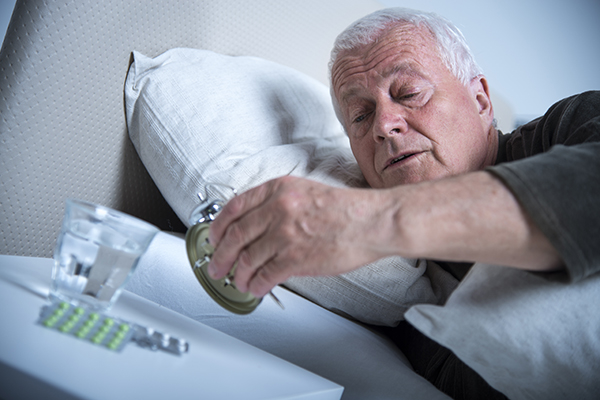
Learn why seniors should avoid sleep medications in this article from the home care provider St. Petersburg, FL families trust.
What could possibly be better than waking up well rested after a great night’s sleep, completely energized and ready to face a new day? For a lot of older adults – as many as one third of them – getting adequate sleep only occurs in their dreams. And sadly, it is a common assumption that inadequate sleep is actually something to be accepted in our later years – a misconception that Preeti Malani, M.D., chief health officer and professor of medicine at the University of Michigan, hopes to dispel.
According to Dr. Malani, “If older adults believe that these changes are a normal, inevitable part of aging, they may not think of it as something to discuss with their doctor. And not discussing it can potentially lead to health issues not being identified and managed.”
Rather than merely tossing and turning, nearly 40% of seniors with insomnia issues are depending on sleeping medications – something which is frequently risky once we get older. Sleeping meds double the likelihood of falls and bone injuries in the elderly, due to the increased dizziness and disorientation they are able to cause. Seniors may also be susceptible to becoming dependent on these kinds of medications. And, the chance for motor vehicle collisions can also be increased, according to Consumer Reports’ Choosing Wisely campaign.
Additionally the concern about sleeping medications extends to herbal solutions and supplements as well, which place seniors at risk for many different additional unwanted effects. Even something as seemingly innocuous as melatonin can interact with other common prescriptions, such as those for diabetes and raised blood pressure, and also cause dizziness and nausea.
Step one in addressing sleep concerns for seniors is to speak with a physician to rule out any underlying conditions (such as for instance depression, anxiety, restless legs syndrome, or even heart problems, to mention a few) and to receive his / her recommendations on how exactly to safely improve sleep. Several safer alternatives include:
- Restrict alcohol and caffeine, especially in the afternoon and evening
- Keep all electronic devices away from the bedroom, and keep the sleeping environment dark and cool
- Set a sleeping pattern and stay with it, sleeping and waking up at the same time every day
- Engage the services of a sleep therapist for cognitive behavioral therapy
Generations at Home can help in many ways as well. Our fully trained and experienced in-home caregivers can certainly help seniors stay active during the day with exercise programs, fun outings, and much more, setting the stage for a significantly better night’s sleep. Contact us online or call us at 727-940-3414 to learn more.







